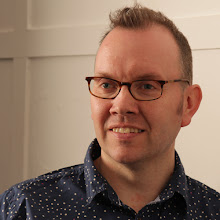Sir Winston Churchill said this (as Prime Minister during the war he needed to be optimistic). This week I used it in a workshop I was running. I had been invited to talk about 'Visual language and communication' at the 'Sustainable Business by Design' Focus Event. So why was I talking about Churchill?

It's all about context. Any business that is developing a 'green' or 'sustainable' position needs to be really clear about why they're doing it. There are two, and only two, business benefits to being 'green': Reducing costs or creating competitive advantage. There are many ways of defining those benefits and many variations, but everything comes back to one of those two. (Wanting to 'save the planet' is not a business benefit. It might be the starting point. But you need to apply that motive to one of those two).
I'm always attracted to opportunities to create competitive advantage - it's what we do for our clients. So I was interested to read earlier this month that, according to research by The Carbon Trust, over 50% of SMEs see a greener economy as a threat. More than half the SMEs in the UK! That's where Churchill comes in. If you've got ambition, vision and some optimism there's a lot of business out there to win - the green market is worth £112m in the UK. If you want a slice it's all about communication. (And the good news is half your competitors aren't even trying).
But this attitude to 'change' isn't unique to the challenges of a greener economy. The wider economic challenges of the past few years have forced every business to make a choice: Are we looking at a threat or an opportunity? But while the economy will (eventually) return to 'normal', the likelihood is that the need to adapt to a greener economy will continue. So how long before the pessimists become optimists? Or will they all become extinct before they get the chance?


